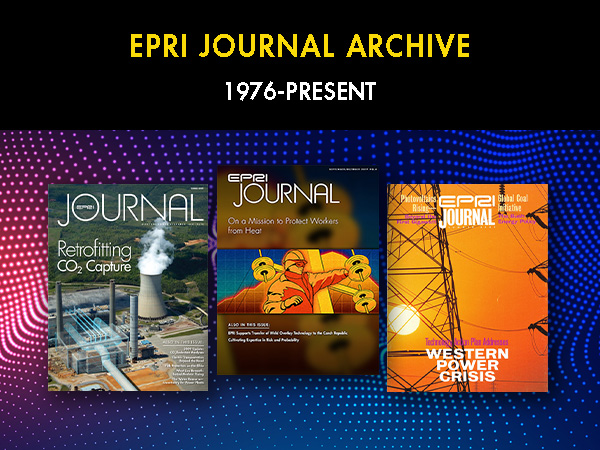A Dispersant a Day Keeps the Doctor Away

Chemical Treatment Reduces Steam Generator Fouling in Nuclear Plants
Using a chemical dispersant, nuclear plant operators have reduced the accumulation rate of iron in steam generators by about 20%, enhancing plant performance and reliability.
In nuclear plants, buildup of iron-based particulates in steam generators (fouling) can lead to corrosion and other performance problems. Since the 1990s, EPRI and other industry stakeholders have developed and successfully field-tested the dispersant polyacrylic acid, which helps prevent particulate deposition on component surfaces, making them more likely to be removed from steam generators via blowdown. Today, operators at 21 plants inject the chemical into their feedwater systems, when the facility is either online or offline for shutdowns and layups.
EPRI assessed seven plants’ experiences with polyacrylic acid from 2009 to 2014, finding iron removal rates in online applications 7–8 times greater than rates without dispersant. Most units using dispersant online also improved steam generator heat transfer efficiency, increasing steam pressure by as much as 0.5% (21–35 kilopascals). Evaluation of applications offline demonstrated the effectiveness of starting injection at high-temperature conditions just prior to shutdown.

